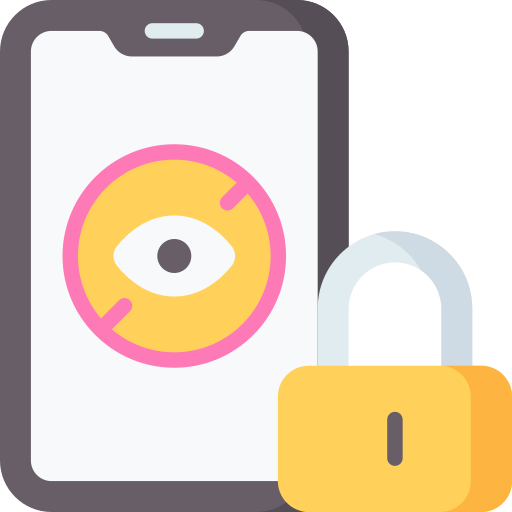Recognizing Impulsive Behaviors Online
Impulsive behaviors online can manifest in various ways, often leading to negative consequences. One common impulsive behavior is excessive spending on online shopping platforms without considering the long-term financial implications. Individuals may find themselves making impulsive purchases based on momentary desires or influenced by persuasive advertising tactics. Another manifestation of impulsivity online is engaging in risky behaviors such as sharing personal information with strangers or participating in dangerous challenges for social media validation.
Recognizing impulsive behaviors online requires attentiveness to one’s own actions and emotions while using digital platforms. It is important to be aware of sudden urges or impulses that arise during online activities, especially when they deviate from planned intentions or rational decision-making processes. Additionally, individuals should pay attention to any patterns of repeated impulsive actions that may indicate a lack of self-control in specific situations or environments.
Furthermore, it is crucial to recognize the emotional state associated with impulsive behaviors online. Impulsivity often stems from heightened emotional states such as stress, boredom, loneliness, or excitement. By acknowledging these underlying emotions and their potential influence on decision-making processes while using the internet, individuals can begin to develop strategies for managing and redirecting their impulses towards healthier alternatives.
Understanding the Impact of Impulse Control Issues in Online Settings
Impulse control issues can have a significant impact in online settings. The instantaneous nature of the internet, with its constant influx of information and opportunities for immediate gratification, can exacerbate impulsive behaviors. This can lead to a range of negative consequences, such as excessive online shopping, engaging in risky or harmful activities on social media platforms, or falling victim to scams and cyberbullying.
One major consequence of impulse control issues online is the potential for compromised personal safety. Impulsivity may lead individuals to share sensitive personal information without considering the potential risks involved. This can make them vulnerable to identity theft, stalking, or other forms of digital exploitation. Additionally, impulsive behavior online may result in engaging with strangers or accepting friend requests from unknown individuals who could pose a threat.
Furthermore, impulse control issues in an online context can also impact one’s mental health and overall well-being. Engaging impulsively with social media platforms may contribute to feelings of inadequacy and low self-esteem as individuals compare themselves unfavorably to others’ carefully curated posts. Moreover, constantly seeking instant gratification through likes and comments reinforces impulsive tendencies and hinders the development of patience and delayed gratification skills.
In summary (without using those words), understanding the impact that impulse control issues have in online settings is crucial for promoting safer and healthier internet use. By recognizing these challenges and their potential consequences on personal safety as well as mental health outcomes, steps can be taken towards developing strategies that foster responsible behavior while navigating the digital world effectively
The Link Between Impulse Control and Online Safety
Impulse control plays a crucial role in maintaining online safety. When individuals struggle to regulate their impulsive behaviors, they may engage in risky online activities without considering the potential consequences. This can lead to various forms of harm, such as falling victim to scams or cyberbullying, sharing personal information with strangers, or becoming addicted to excessive screen time.
One significant link between impulse control and online safety is the tendency for impulsive individuals to act on immediate gratification without considering long-term risks. For example, someone with poor impulse control might impulsively respond angrily to an offensive comment on social media, escalating a conflict that could have been avoided by exercising restraint. Additionally, impulsive behavior can make individuals more susceptible to engaging in unsafe online practices like clicking on suspicious links or downloading malicious software.
Another important aspect of the link between impulse control and online safety is the influence of emotions on decision-making. Impulsivity often arises from heightened emotional states where rational thinking takes a backseat. When faced with negative emotions such as anger or frustration while using digital platforms, individuals may be more likely to engage in impulsive behaviors that compromise their own safety or that of others.
In conclusion (Oops! Sorry about that), recognizing the connection between impulse control and online safety is essential for promoting responsible digital citizenship. By understanding how impulsivity affects decision-making processes and adopting strategies for self-regulation, individuals can navigate the internet more safely and avoid potentially harmful situations.
Identifying Triggers for Impulsive Behavior Online
Identifying triggers for impulsive behavior online can be a crucial step in understanding and addressing this issue. One common trigger is the presence of social media platforms that offer instant gratification through likes, comments, and shares. The constant need for validation and attention can lead individuals to engage in impulsive behaviors such as posting without thinking or oversharing personal information.
Another trigger is the anonymity provided by online environments. When individuals feel hidden behind a screen name or profile picture, they may feel less accountable for their actions and more inclined to act impulsively. This can manifest in cyberbullying, trolling, or engaging in risky behaviors without considering the consequences.
Additionally, the fast-paced nature of online interactions can also serve as a trigger for impulsive behavior. Instant messaging apps, rapid-fire comment sections, and constantly updating news feeds create an environment where quick responses are expected. This pressure to respond immediately can lead individuals to react impulsively without taking time to consider their words or actions.
By recognizing these triggers for impulsive behavior online, we can begin to develop strategies and interventions aimed at promoting healthier digital habits. It is essential to educate individuals about these triggers so they can better understand their own impulses and learn how to navigate online environments with greater self-control.
Teaching Mindfulness Techniques for Online Impulse Control
One effective approach to addressing impulsive behaviors online is through teaching mindfulness techniques. Mindfulness involves being fully present in the current moment and aware of one’s thoughts, feelings, and actions without judgment. By practicing mindfulness, individuals can develop greater self-awareness and impulse control.
One technique that can be taught is mindful breathing. Encouraging individuals to take a few deep breaths before engaging in any online activity can help them become more grounded and centered. This simple practice allows for a pause between an impulse arising and taking action, giving individuals the opportunity to make more conscious choices about their behavior online.
Another helpful technique is body scan meditation. This involves systematically focusing attention on different parts of the body, noticing any sensations or tension that may be present. By bringing awareness to physical sensations associated with impulsivity, individuals can gain insight into their triggers and learn to respond rather than react impulsively in online settings.
By incorporating these mindfulness techniques into education programs or counseling sessions focused on online impulse control, individuals can develop valuable skills for managing impulsive behaviors effectively. These practices promote self-reflection, emotional regulation, and thoughtful decision-making in digital environments where impulses are often heightened due to instant gratification and anonymity factors.
Developing Healthy Coping Mechanisms for Online Impulsivity
Developing healthy coping mechanisms for online impulsivity is crucial in ensuring a safe and responsible digital presence. One effective strategy is to encourage individuals to take regular breaks from their devices. This can help reduce impulsive behaviors by providing opportunities for reflection and self-control. By stepping away from the online environment, individuals can gain perspective and make more thoughtful decisions about their actions.
Another important coping mechanism is practicing self-awareness and recognizing triggers for impulsive behavior online. Identifying what leads to impulsive actions allows individuals to develop strategies for managing these triggers effectively. For example, if social media notifications trigger an urge to immediately respond or engage, one could try disabling notifications or setting specific times throughout the day dedicated solely to checking messages or updates.
Additionally, cultivating healthy offline activities can serve as a valuable outlet for managing impulses online. Encouraging hobbies such as reading, exercising, or spending time with loved ones provides alternative ways of fulfilling needs that may otherwise be sought through impulsive behavior on the internet. Engaging in meaningful activities offline not only helps divert attention from impulsive urges but also promotes overall well-being.
By implementing these coping mechanisms into daily routines, individuals can develop healthier habits when navigating the online world. It’s important to remember that developing impulse control takes time and practice; however, with patience and persistence, it is possible to cultivate a balanced approach towards technology use while maintaining personal safety and well-being in digital spaces.
Creating Structured Online Environments to Promote Self-Control
Creating structured online environments is crucial in promoting self-control among individuals. By implementing clear guidelines and rules, users are more likely to understand the boundaries and expectations of their online behavior. This structure can help curb impulsive actions by providing a framework for responsible and thoughtful decision-making.
One effective way to create structured online environments is by utilizing parental control software or settings. These tools allow parents or guardians to set limits on screen time, block inappropriate content, and monitor online activities. By establishing these restrictions, individuals are less likely to engage in impulsive behaviors such as excessive gaming or browsing.
Additionally, educational institutions can play a significant role in promoting self-control through structured online environments. They can implement policies that limit access to social media platforms during school hours or provide designated times for internet usage. By creating these controlled spaces, students are encouraged to focus on academic tasks rather than succumbing to distractions or impulsivity.
By creating structured online environments that promote self-control, individuals are empowered with the necessary tools and support systems needed for responsible digital citizenship. It is essential for both parents/guardians and educators to collaborate in implementing these strategies effectively. Through this collaborative effort, we can foster an environment where impulse control is prioritized and individuals develop healthy habits when navigating the virtual world without compromising their well-being or safety.
Setting Realistic Boundaries and Expectations for Online Behavior
One important aspect of promoting healthy online behavior is setting realistic boundaries and expectations. This involves establishing clear guidelines for how individuals should conduct themselves while using the internet. By outlining specific rules and limitations, it becomes easier to navigate the digital world responsibly.
Parents and educators play a crucial role in defining these boundaries. They can establish age-appropriate restrictions on screen time, access to certain websites or apps, and appropriate content consumption. It is also essential to communicate the potential consequences of violating these boundaries, such as loss of privileges or restricted access.
Moreover, setting realistic expectations about online behavior involves teaching individuals about responsible digital citizenship. This includes understanding the importance of respecting others’ privacy, being mindful of one’s online presence, and avoiding engaging in harmful or offensive activities. By instilling a sense of responsibility from an early age, we can help create a safer and more respectful online environment for everyone involved.
Encouraging Open Communication about Impulse Control Challenges Online
Open communication is essential when it comes to addressing impulse control challenges online. By encouraging individuals to openly discuss their struggles with impulse control, we can create a supportive environment where people feel comfortable seeking help and sharing their experiences. This open dialogue allows for a better understanding of the difficulties faced by those dealing with impulsive behaviors online.
When discussing impulse control challenges, it is important to emphasize that these issues are not uncommon or something to be ashamed of. By normalizing the conversation around impulse control, individuals may feel more inclined to share their own struggles and seek guidance from others who have overcome similar obstacles. Creating a safe space for open communication helps reduce stigma and encourages empathy and support within online communities.
Additionally, open communication about impulse control challenges can lead to the development of effective strategies and coping mechanisms. Through shared experiences and insights, individuals can learn from one another’s successes and failures in managing impulsivity online. This exchange of knowledge fosters personal growth and empowers individuals to take proactive steps towards improving their self-control in digital environments.
By promoting open communication about impulse control challenges online, we foster an inclusive community that supports its members in navigating the complexities of this issue. It is through these conversations that we can collectively work towards creating safer digital spaces while providing valuable resources for those struggling with impulsive behaviors online.
Collaborating with Parents and Educators to Support Online Impulse Control
Parents and educators play a crucial role in supporting online impulse control among children and adolescents. By collaborating together, they can create a united front to address this issue effectively. Open communication between parents and educators is key, as it allows for the sharing of insights, concerns, and strategies that can help manage impulsive behaviors online.
One way parents and educators can collaborate is by setting clear expectations and boundaries for online behavior. Establishing guidelines regarding screen time limits, appropriate content consumption, and responsible internet use can provide structure and promote self-control. Consistency between home and school environments is important to reinforce these expectations consistently.
Additionally, working together to educate children about the potential risks of impulsive behavior online is essential. Parents can discuss with their children the consequences of acting on impulses without considering the potential harm or long-term effects. Educators can incorporate lessons on digital citizenship into their curriculum to teach students about responsible online behavior.
By working hand in hand, parents and educators can support children in developing healthy coping mechanisms for impulsivity online. This collaboration involves identifying triggers that lead to impulsive actions in an online setting so that preventative measures can be put in place. It also includes teaching mindfulness techniques that encourage self-awareness and reflection before engaging in impulsive behaviors.
Overall, collaborative efforts between parents and educators are vital when it comes to addressing impulse control issues online. By fostering open communication channels, establishing clear boundaries, educating about risks, promoting healthy coping mechanisms,and providing consistent guidance at homeand school settings , wecan empower children withthe necessary skills neededto navigate the digital worldresponsiblyand safely.
What are some common impulsive behaviors that can occur online?
Some common impulsive behaviors that can occur online include oversharing personal information, engaging in risky online activities, impulsively making online purchases, and responding impulsively to online communication or social media posts.
How does impulse control issues impact online settings?
Impulse control issues can have a negative impact on online settings as individuals may engage in risky or harmful behaviors without considering the consequences. This can lead to online safety concerns, compromised personal information, and strained relationships.
What is the link between impulse control and online safety?
Impulse control is closely linked to online safety. Individuals with poor impulse control may engage in risky online behaviors, such as interacting with strangers, clicking on suspicious links, or sharing personal information without considering the potential risks involved.
How can one identify triggers for impulsive behavior online?
Triggers for impulsive behavior online can vary, but common triggers include boredom, stress, fear of missing out (FOMO), and emotional distress. It is important to identify these triggers to develop strategies to manage and control impulsive behavior.
What are mindfulness techniques for online impulse control?
Mindfulness techniques for online impulse control include taking deep breaths, practicing self-awareness, focusing on the present moment, and using techniques like meditation or guided imagery to calm the mind and reduce impulsive urges.
How can one develop healthy coping mechanisms for online impulsivity?
Developing healthy coping mechanisms for online impulsivity involves finding alternative activities or outlets for emotional expression, such as engaging in hobbies, physical exercise, journaling, or seeking support from friends and family.
How can structured online environments promote self-control?
Structured online environments can promote self-control by setting clear rules and expectations, providing consistent routines, and limiting distractions. This helps individuals better regulate their impulses and stay focused on their intended online activities.
Why is it important to set realistic boundaries and expectations for online behavior?
Setting realistic boundaries and expectations for online behavior helps individuals understand what is acceptable and appropriate, as well as the potential consequences of impulsive actions. This promotes responsible online behavior and minimizes impulsive decision-making.
How can open communication about impulse control challenges online be encouraged?
Open communication about impulse control challenges online can be encouraged by creating a safe and non-judgmental environment where individuals feel comfortable discussing their struggles. This can be achieved through regular check-ins, supportive conversations, and providing resources for seeking help or guidance.
How can parents and educators collaborate to support online impulse control?
Parents and educators can collaborate to support online impulse control by regularly communicating with each other, sharing information and strategies, and working together to establish consistent expectations and boundaries. This partnership can help provide a unified approach in guiding individuals towards responsible online behavior.




